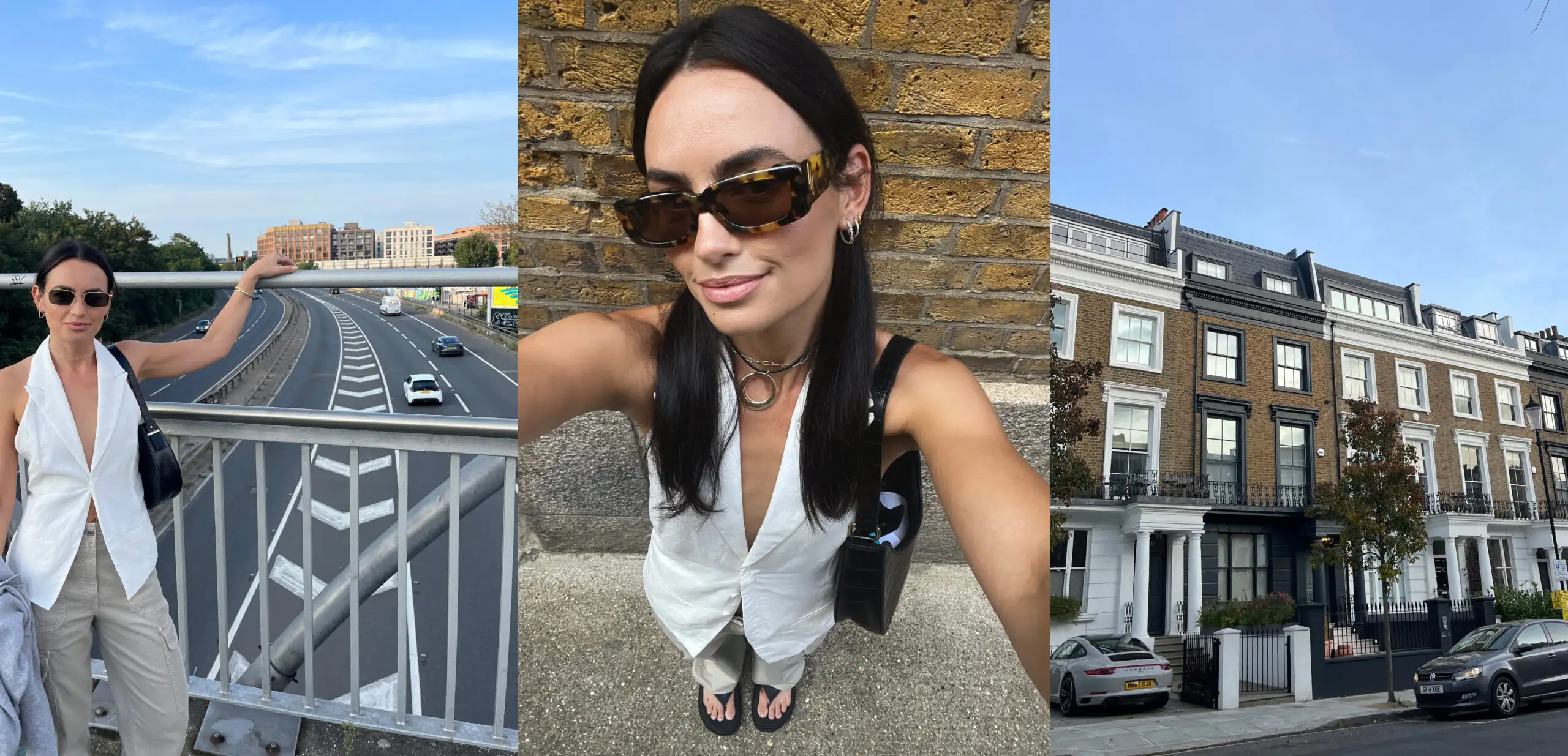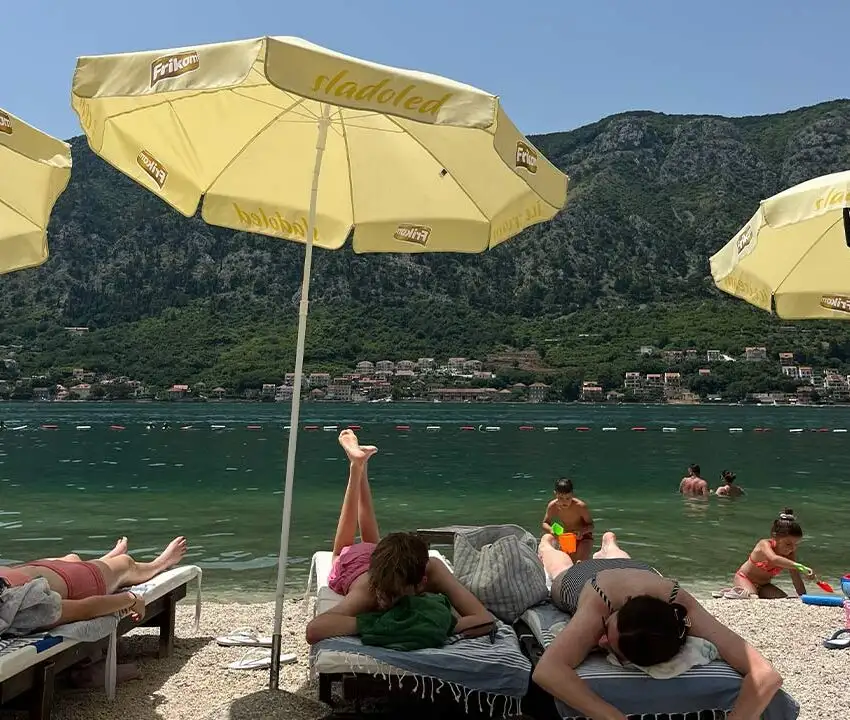
I Moved To London In My 20s: Here’s What No One Tells You
Cliché or life-changing?
By Kiri Johnston | 8th April 2025Thinking about moving to London in your twenties? I did it — and it changed everything. From chaotic Tube rides to career-defining moments, I spent five years navigating jobs, housing, friendships, and the greyest weather imaginable. It wasn’t always easy, but it taught me a lot about risk, resilience, and building a new life from scratch. Here’s what no one really tells you.
It was 2016 when I first got a taste of the London expat life. I’d packed a suitcase and set off to Europe with a girlfriend, ready for one wild Euro summer. London was our base — we stayed at my brother’s South West flat with his housemates, made the most of the local haunts, and got a little glimpse of what it’s like to live abroad. Over five whirlwind weeks, we ticked off nearly every city in Europe, celebrating my 21st birthday in Greece with friends. I don’t think we could’ve squeezed in anything else if we tried. We were sunbathing and exploring by day, partying and dancing by night. Messy, carefree, and having the time of our lives.
When I flew home to Brisbane, I was broke and exhausted — but inspired. On a whole new level. Within a few years, I’d sold nearly everything I owned, saved like crazy, and convinced my boyfriend to move to London with me. Everyone thought I was mad. “You’re such a beach bum,” they said. “You’ll hate the cold.” But I didn’t care — I was keen to prove them wrong. Of course, leaving my family, friends, and my dogs behind wasn’t easy. But I was in my early twenties, desperate for something new. What did I have to lose?
We applied for our two-year visas, packed two suitcases, and off we went. After a two-month holiday, we arrived in London and had that “oh shit” moment. No jobs, nowhere to live, and no connections. But we weren’t worried. Figuring it out was part of the fun. At first, we did the classic move everyone does — found a share house in Clapham.
Our first flat was a brick terrace house on a beautiful street, just off Clapham Common, where we’d hang with friends after work or on the weekends. I was determined not to fall into the cliché “Aussies in London” trap… but let’s be honest, it’s inevitable. Before long, old school friends who’d also made the move started sliding into my DMs, keen to catch up. It was 2019. We worked by day, then spent the rest of our time embracing the pub culture, catching gigs at Ally Pally, bar hopping around Soho, hitting up the clubs, and getting around the festival scene. We’d book cheap flights to Spain or jump on the train to the Cotswolds or Edinburgh for the weekend. London life was filled with busy days, late nights, and those occasional pinch-me moments.
On weekdays, you’d find me wedged onto the Tube, walking over Tower Bridge to get to work, grabbing a quick Pret or M&S lunch. Evenings usually turned into dinners in town, which somehow always escalated into late nights out with minimal sleep. I’ll admit — we all lived for payday. Rent wasn’t cheap — neither were those spontaneous trips to Italy. But we always made it work. Somehow, we still managed to have new clothes and make it to the local for a Sunday roast.
Then came Covid. London fell eerily quiet. Everything stopped. The streets were empty, and so was the Tube. But by that point, London was home. I’d been lucky to work with the head offices of big brands like Harrods, Adidas, NARS, and a few cool start-ups. I seized every opportunity to learn as much as I could. When you put yourself out there, doors keep opening. London’s unspoken rule: work hard, play harder. Everyone had mastered the art of work-life balance, and I was all for it.
I started trusting my instincts more: in work, in life, in myself. I stopped playing small. London has a way of shaking that out of you.
Yes, it was grey and freezing, but honestly, that was the least of my worries. I learnt to appreciate the cold, something I’d never done back in Australia. Wrapped in a wool coat, rushing to the station in the crisp morning air felt reinvigorating. With the right layers, you’re sweet. I swapped beach days for scarves and gloves, pounding the pavement like a proper Londoner. The chaos, the grit, the madness — it was all character-building. It toughened me up. I even had my phone swiped in broad daylight. But it’s all part of it. You grow thick skin, learn to hold your own, and somewhere along the way, you start to love London for what it is.
Over five years, I made friends from all walks of life and uncovered every corner of the city. On weekends, I’d bounce between Camden, Angel, Shoreditch, Richmond, Hampstead, and Brixton — each with its own distinct charm. And when we weren’t exploring London, we were exploring Europe. Weekend getaways became the norm — Paris, Stockholm, Malta, Croatia, Lisbon — you name it. After Clapham, we moved east to Bethnal Green and immersed ourselves in the cultural mix there. Then to Dalston, my favourite spot in London. Much less polished than the west, brimming with creative energy and an unapologetic sense of individuality.
I knew I wasn’t going to be there forever, so I just said yes to everything and soaked up the whole experience.
London pushed me. I learnt to back myself, to walk into rooms where I knew no one, to take risks. I left Brisbane thinking I had it all figured out. I came back knowing there’s so much more out there and how naive I was before. We kept extending our visas, but after five years, we knew it was finally time to come home.
London will always be a magical place to me. And just like anything in life, it is what you make of it. Cliché? Maybe. But life-changing? Without a doubt.





